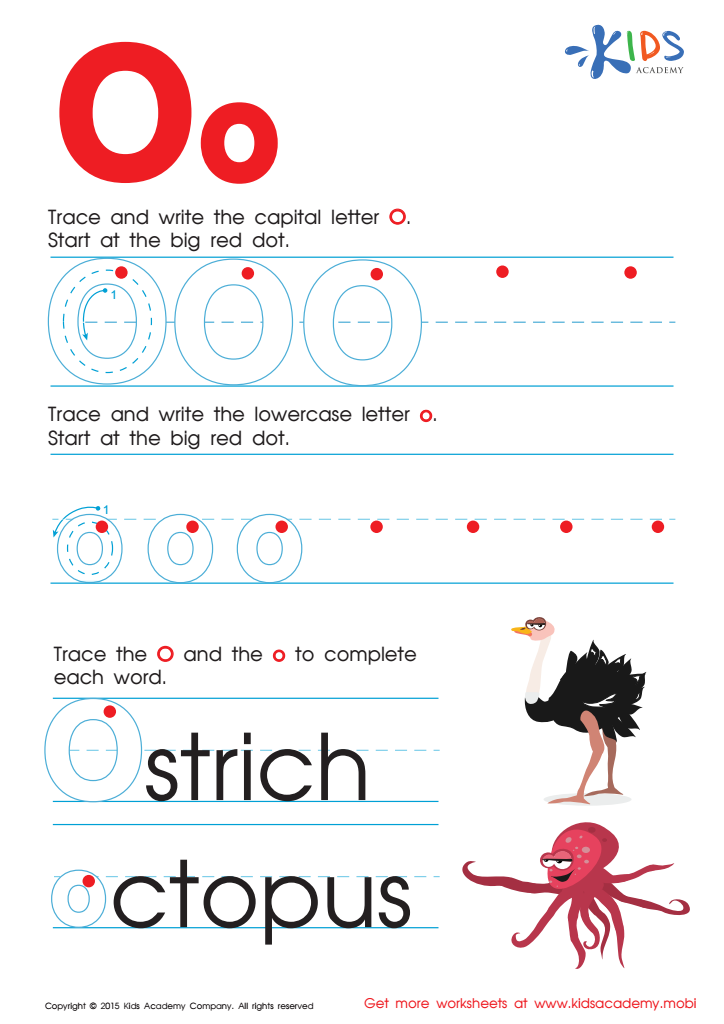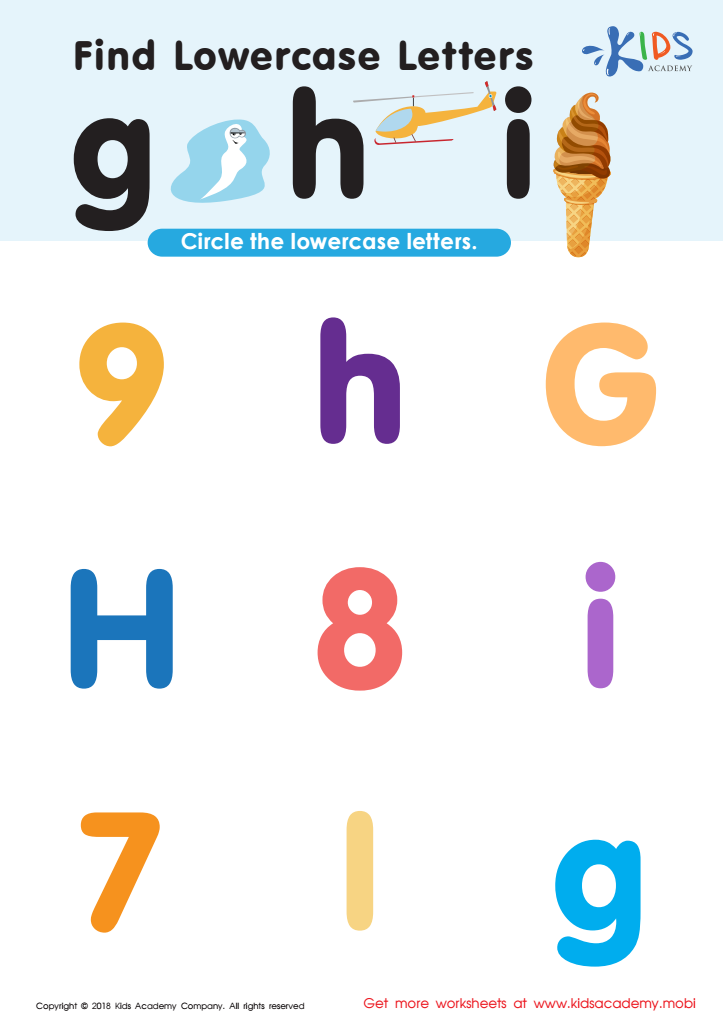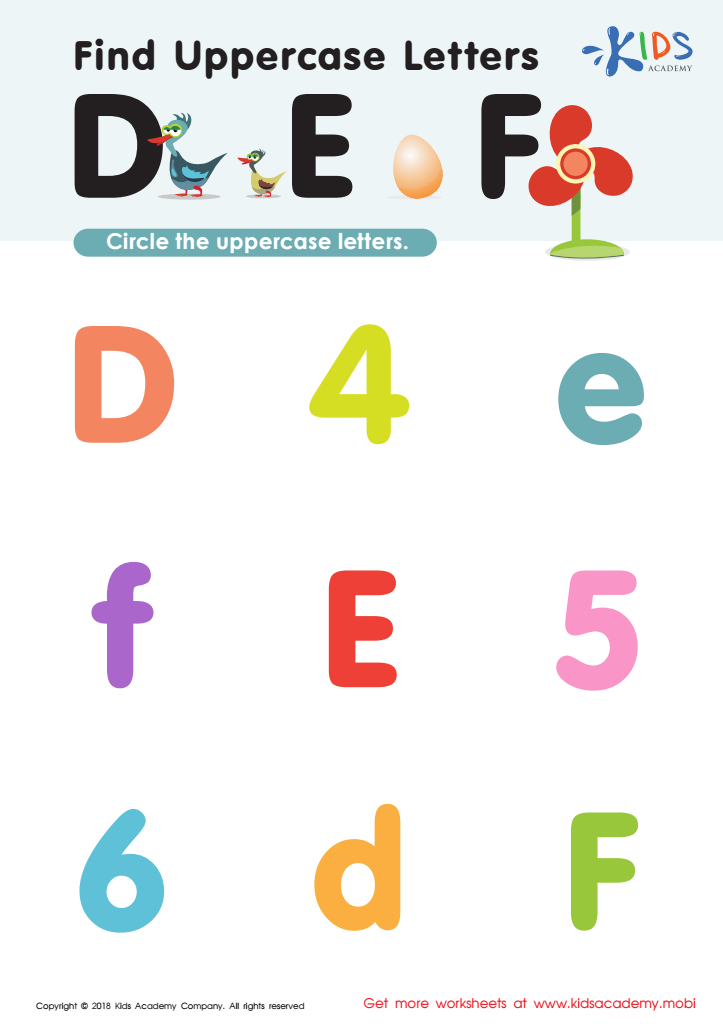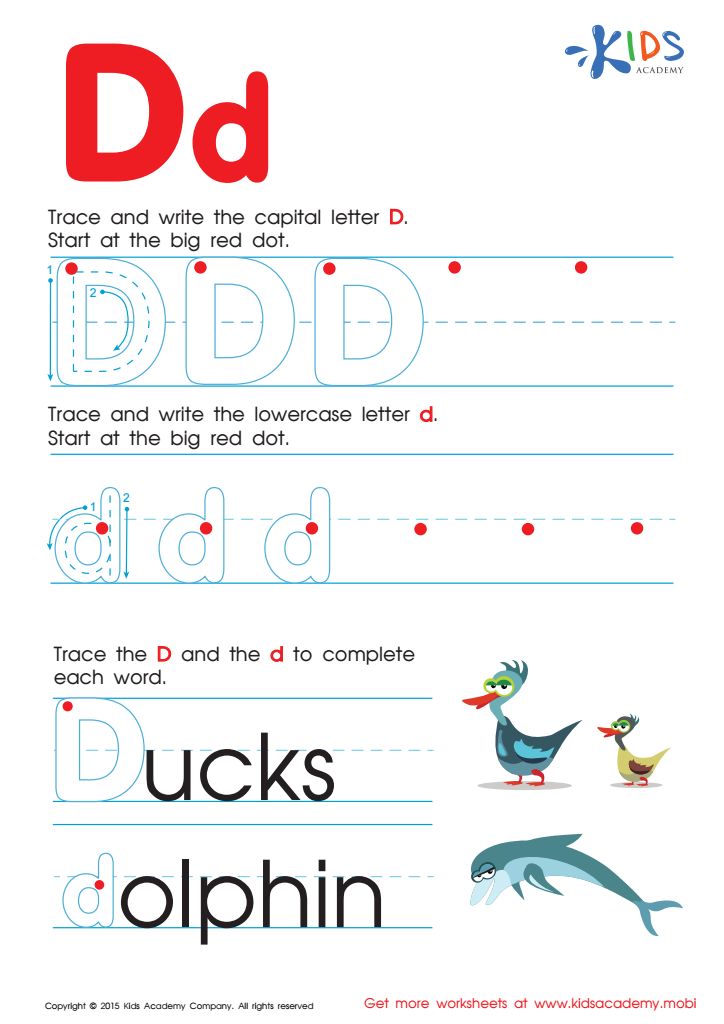Hand-eye Coordination Normal Letter Recognition Worksheets for Ages 3-6
7 filtered results
-
From - To
Enhance your child's learning with our Hand-eye Coordination Normal Letter Recognition Worksheets, specifically designed for ages 3-6. These engaging worksheets foster essential hand-eye coordination skills while helping young learners recognize and identify letters of the alphabet. Each activity is thoughtfully crafted, ensuring a fun and educational experience that lays the foundation for future literacy. Your little ones will enjoy tracing, matching, and completing exercises that boost their confidence and comprehension. Perfect for preschoolers and kindergarteners, these worksheets make learning letters an enjoyable adventure, empowering your child to develop critical skills while having fun. Download now to support your child's growth and learning journey!


Letter O Tracing Page


Find Lowercase Letters g h i Worksheet


Letter P Tracing Page


Letter H Tracing Page


Long Vowel Maze /o/ and /i/ Worksheet


Find Uppercase Letters D, E, and F Worksheet


Letter D Tracing Page
Hand-eye coordination and normal letter recognition are critical skills for children aged 3-6 as they lay the foundational framework for future learning and development. At this age, children's brains are highly receptive, and fostering these skills can enhance their overall cognitive abilities.
Hand-eye coordination is essential for a variety of everyday tasks, such as writing, drawing, and manipulating small objects. When children develop this ability, they improve their dexterity and concentration, which are vital for their growth during preschool and early elementary years. Moreover, enjoying activities that sharpen this coordination, like simple games, crafts, or sports, fosters social interaction and teamwork.
Normal letter recognition is equally important as it directly correlates with literacy skills. Recognizing letters helps children understand the alphabet, which is essential for reading and writing. Early recognition promotes phonemic awareness, enriching their vocabulary and comprehension abilities as they progress in school.
When parents and teachers focus on these developmental milestones, they empower children to build confidence in their abilities, set the stage for academic success, and equip them with the tools they need for effective learning across subjects. Engaging activities that support these skills can make learning fun, ensuring that children are eager and ready to explore the world around them.

 Assign to My Students
Assign to My Students






















